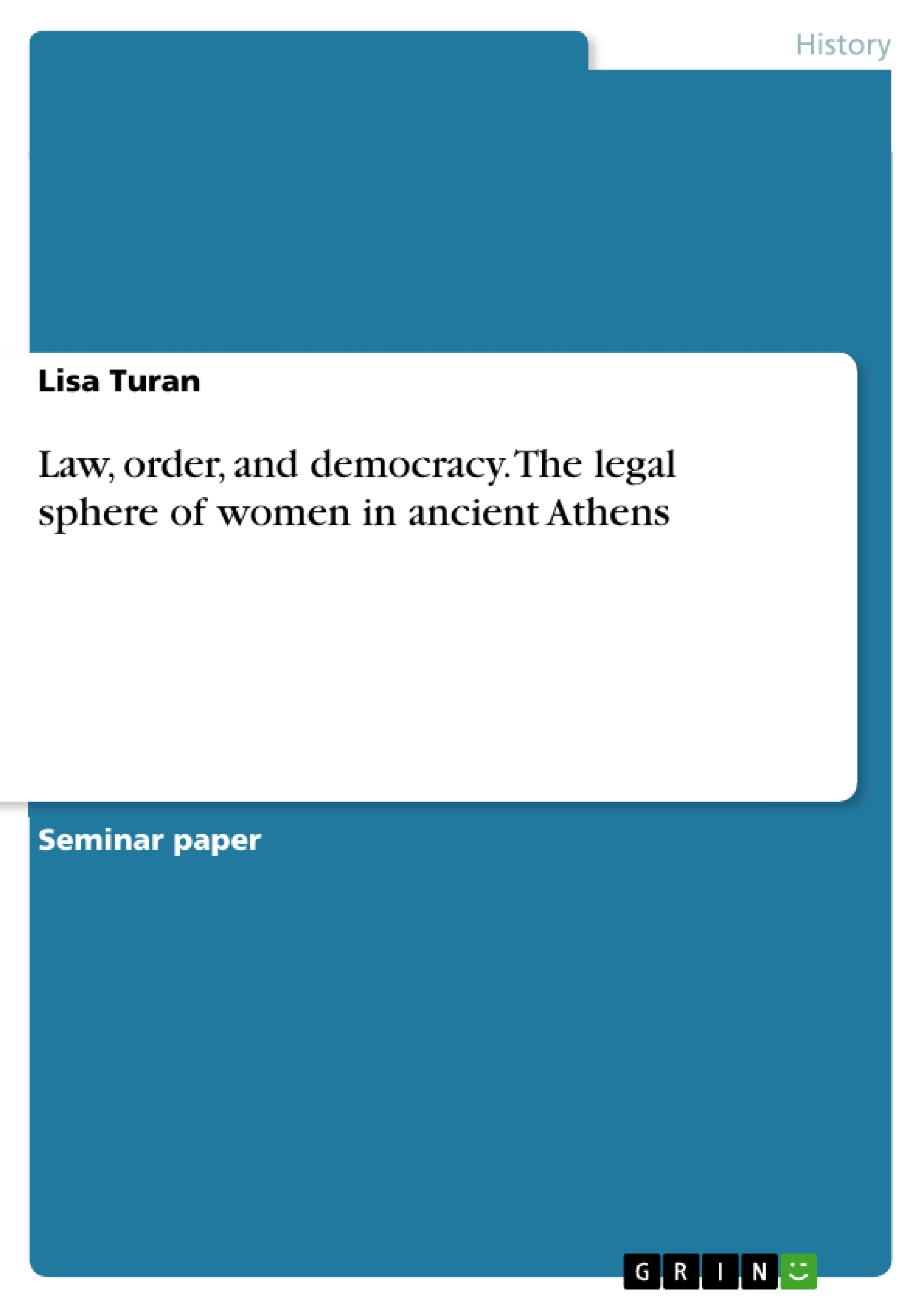Around the 5th century BC, the people of ancient Athens pioneered the concept of demokratia, a system of self-governance that means power to the people in its original sense. Different from previous regimes, the establishment of democracy guaranteed direct political and legal access for free Athenian citizens despite wealth, property, or power relations.
Nevertheless, there is fierce controversy concerning the question of how democratic the Attic legal system was for the female population. Critics claim among others the arbitrariness of judgments and the lack of legal education of most of Athens’s population who were neither in the position to make proper decisions in court nor to revise verdicts, in addition to gender inequality in regard to the access to Athens’s law system. Most strikingly is that previous work in this field focused predominantly on the scope of men within the justice system, while written pieces concerning female voices barely exist. Ultimately, this urges us to ask whether the Athenian justice system provided legal access for women and how they have been legally prosecuted at the time.
Table of Contents
- Introduction
- Legal and social conventions for women in ancient Athens
- Female access to the Athenian justice system
- Discussion: To Antigenes, on the abortion
- Conclusion
Objectives and Key Themes
This research paper aims to analyze the legal sphere of women in ancient Athens by exploring the legal and social conventions they faced within the male-dominated society. It will examine the accessibility of the Athenian justice system for women, comparing it to men's access, and discuss a specific case involving a female defendant to shed light on the legal situation of women as perpetrators.
- Social and legal conventions for Athenian women
- Access to the Athenian justice system for women
- The case of "To Antigenes, on the abortion"
- The role of gender in public and private spheres
- The impact of historical perspectives on understanding Athenian womanhood
Chapter Summaries
- Introduction: This chapter introduces the concept of democracy in ancient Athens and the controversy surrounding the legal status of women in this system. It emphasizes the lack of research focusing on the legal sphere of women and outlines the paper's objectives.
- Legal and social conventions for Athenian women: This chapter explores the historical perception of Athenian women as living under the domination of men. It analyzes the roles of kyrios and the division of public and private spaces based on gender. The chapter also addresses the problematic interpretation of Athenian womanhood as being in "oriental harem-slavery," emphasizing the importance of considering historical context and avoiding contemporary biases.
- Female access to the Athenian justice system: This chapter examines the key components of the Athenian justice system, including the ekklesia, the boule, and the dikasterion. It discusses the different stages of the justice system and the role of magistrates. The chapter analyzes the limited access of women to public spaces and their legal dependence on male guardians.
Keywords
This research paper delves into the legal sphere of women in ancient Athens. The key focus areas include: Athenian democracy, social and legal conventions, female access to the justice system, gender roles, public and private spheres, historical perspectives on womanhood, and the case of "To Antigenes, on the abortion".
Frequently Asked Questions
Did women have legal access in ancient Athenian democracy?
Women had very limited direct access to the legal system. They were generally represented by a male guardian (kyrios) in both public and legal matters.
What was the role of the "kyrios"?
The kyrios was a woman's legal protector (usually her father or husband) who managed her property and acted on her behalf in the Athenian courts.
What is the case "To Antigenes, on the abortion" about?
It is a specific legal case discussed in the paper that illustrates how women could be prosecuted or involved in legal disputes concerning domestic and bodily matters.
How were public and private spaces divided by gender?
Athenian society strictly separated the "oikos" (private home), where women spent most of their time, from the "polis" (public square/assembly), which was the domain of male citizens.
Is it true that Athenian women lived like slaves?
The paper critiques the older view of "oriental harem-slavery," arguing that while their rights were restricted, the reality of their lives was more nuanced and context-dependent.
- Arbeit zitieren
- Lisa Turan (Autor:in), 2023, Law, order, and democracy. The legal sphere of women in ancient Athens, München, GRIN Verlag, https://www.grin.com/document/1379697



